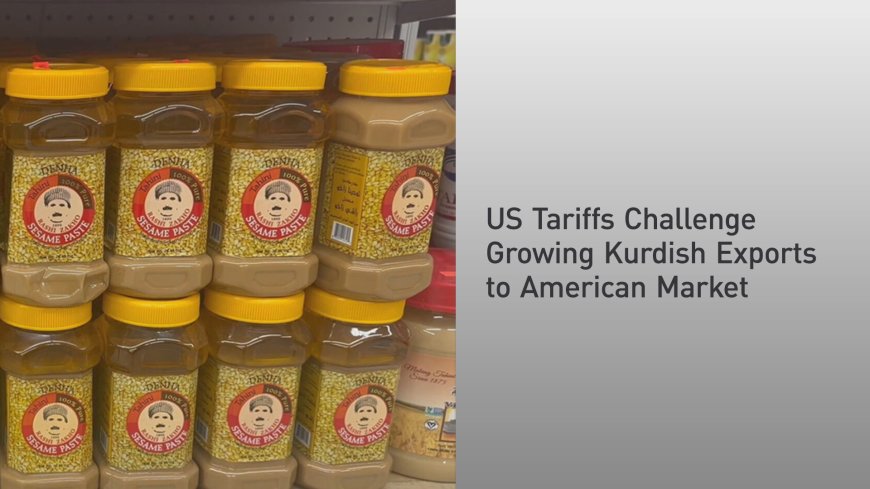Despite the tariff hike, exports from the Kurdistan Region to the US are on the rise, driven by increasing interest in regional specialties such as tahini, sumac, walnuts, and honey.

he United States has imposed a 39 percent tariff on goods imported from Iraq and the Kurdistan Region, a move that could significantly impact the growing demand for Kurdish food products on the American market.
Despite the tariff hike, exports from the Kurdistan Region to the US are on the rise, driven by increasing interest in regional specialties such as tahini, sumac, walnuts, and honey. These products are not only gaining traction on store shelves but are also being embraced by restaurants seeking authentic Middle Eastern ingredients.
“My restaurants serve mostly Middle Eastern food. I use a lot of tahini, and I have always thought it would be a good idea to import it myself rather than buy it from distributors,” said Rose Previte, owner of Washington, D.C.-based Maydān restaurant, in an interview with Kurdistan24.
Previte discovered a tahini producer in the Kurdistan Region through a personal connection and was impressed by the product’s quality. “When I tasted the tahini, I decided to bring it and sell it here,” she said.
However, the newly imposed 39 percent tariffs by the Trump administration could complicate these efforts. The increased cost of importing Kurdish goods may affect both small importers and customers, posing a challenge to further expansion into the American market.







































